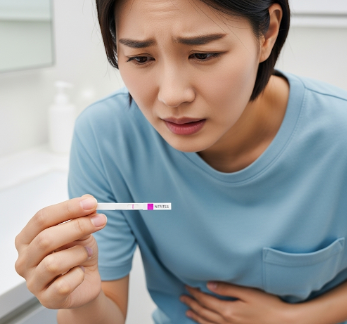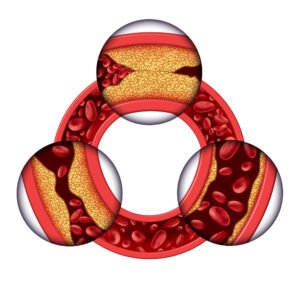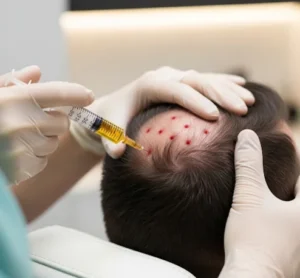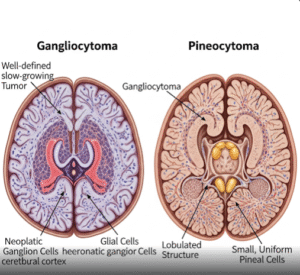Overview
Nitrite-positive urine refers to the presence of nitrites in the urine, typically detected through a urine dipstick test. This is an important diagnostic marker because it often indicates a urinary tract infection (UTI) caused by bacteria capable of converting nitrates in the urine into nitrites.
In Korea, detecting nitrite-positive urine is a routine part of urinalysis, helping clinicians identify bacterial infections early, initiate treatment, and prevent complications such as kidney infections or sepsis.
Key Facts
➤ Nitrite-positive urine usually signals the presence of Gram-negative bacteria, such as Escherichia coli.
➤ The dipstick test is a rapid screening tool used in clinical practice.
➤ False negatives can occur if urine has been in the bladder for less than 4 hours.
➤ It is commonly associated with urinary tract infections, especially in women.
➤ Early detection in Korea helps prevent progression to complicated UTIs.
What is Nitrite-Positive Urine?
When certain bacteria are present in the urinary tract, they convert naturally occurring nitrates into nitrites. This can then be detected through urine testing:
➔ Nitrite-positive urine indicates bacterial activity and serves as a marker for possible infection.
However, not all UTIs produce nitrites; some bacteria do not convert nitrates, leading to false negatives. Therefore, nitrite detection is typically combined with other tests such as leukocyte esterase, urine culture, and microscopy.
Symptoms Related to Nitrite-Positive Urine
Nitrite-positive urine itself is a laboratory finding, but it often correlates with urinary tract infection symptoms, including:
➤ Frequent urination or urgency.
➤ Painful or burning sensation during urination (dysuria).
➤ Cloudy or foul-smelling urine.
➤ Lower abdominal or pelvic discomfort.
➤ Fever or malaise in more severe infections.
➤ Hematuria (blood in urine) in some cases.
Causes / Possible Causes
Nitrite-positive urine is most commonly caused by bacterial urinary tract infections.
Infections
➤ Escherichia coli – most common cause of UTIs.
➤ Klebsiella, Enterobacter, Proteus species – other Gram-negative bacteria.
➤ Occasionally mixed bacterial infections in complicated cases.
Other Factors
➤ Incomplete bladder emptying, increasing bacterial growth.
➤ Urinary catheterization, which can introduce bacteria.
➤ Structural abnormalities in the urinary tract, such as kidney stones.
➤ Immunocompromised states increasing susceptibility to infection.
False Positives
➤ Contamination during sample collection.
➤ Certain medications or supplements affecting dipstick reactions.
Risk Factors
➤ Female gender, due to shorter urethra facilitating bacterial entry.
➤ Sexual activity, which may introduce bacteria into the urinary tract.
➤ Urinary tract abnormalities, such as kidney stones or structural defects.
➤ Diabetes, which can increase infection risk.
➤ Use of urinary catheters or prolonged hospitalization.
Complications
Untreated nitrite-positive UTIs can lead to:
➤ Progression to pyelonephritis (kidney infection).
➤ Sepsis in severe cases.
➤ Recurrent UTIs causing chronic kidney damage.
➤ Increased discomfort due to persistent dysuria, urgency, and frequency.
➤ Secondary complications in pregnancy, including preterm labor or low birth weight.
When Should I See My Doctor?
Seek medical attention if:
➤ Nitrite-positive urine is accompanied by burning sensation, urgency, or frequency.
➤ Fever, chills, or lower back pain develops.
➤ Symptoms persist or worsen despite hydration and home care.
➤ Recurrent UTIs occur frequently.
➤ You have underlying medical conditions such as diabetes, kidney disease, or immunosuppression.
Care and Treatment
Lifestyle and Home Measures
➤ Drink plenty of water to flush bacteria from the urinary tract.
➤ Maintain good personal hygiene.
➤ Urinate after sexual activity to reduce bacterial colonization.
➤ Avoid irritating substances such as caffeine, alcohol, or artificial sweeteners.
Medical Treatments
➤ Antibiotic therapy based on urine culture and sensitivity testing.
➤ Pain relief with analgesics or urinary tract-specific medications.
➤ Address underlying structural or metabolic issues contributing to recurrent infections.
➤ Follow-up urine testing to confirm infection clearance.
Preventive Measures
➤ Regular urinalysis in at-risk populations, such as pregnant women or elderly individuals.
➤ Proper hydration and hygiene practices.
➤ Prompt treatment of initial infections to prevent recurrence.
➤ Consider cranberry extract or probiotics as supportive measures (consult your doctor).
Treatment Options in Korea
Korean healthcare offers comprehensive management of nitrite-positive urine and underlying UTIs, including:
Diagnostic Services
➤ Urine dipstick testing and microscopy.
➤ Urine culture and sensitivity tests to guide antibiotic choice.
➤ Imaging studies for recurrent or complicated infections.
➤ Screening for underlying metabolic or structural abnormalities.
Therapies and Supportive Care
➤ Prescription targeted antibiotics based on pathogen identification.
➤ Pain management and supportive measures for symptom relief.
➤ Education on hydration, hygiene, and preventive strategies.
➤ Follow-up evaluations to ensure complete resolution and prevent recurrence.
➤ Integrated care involving urology, nephrology, and primary care specialists.
✅ In summary: Nitrite-positive urine is a marker of bacterial urinary tract infection, most commonly caused by Gram-negative bacteria. While often asymptomatic initially, it can progress to painful UTIs or kidney infections if untreated. In Korea, early detection through urinalysis, targeted antibiotic treatment, and preventive measures ensures effective management and reduces the risk of complications.













